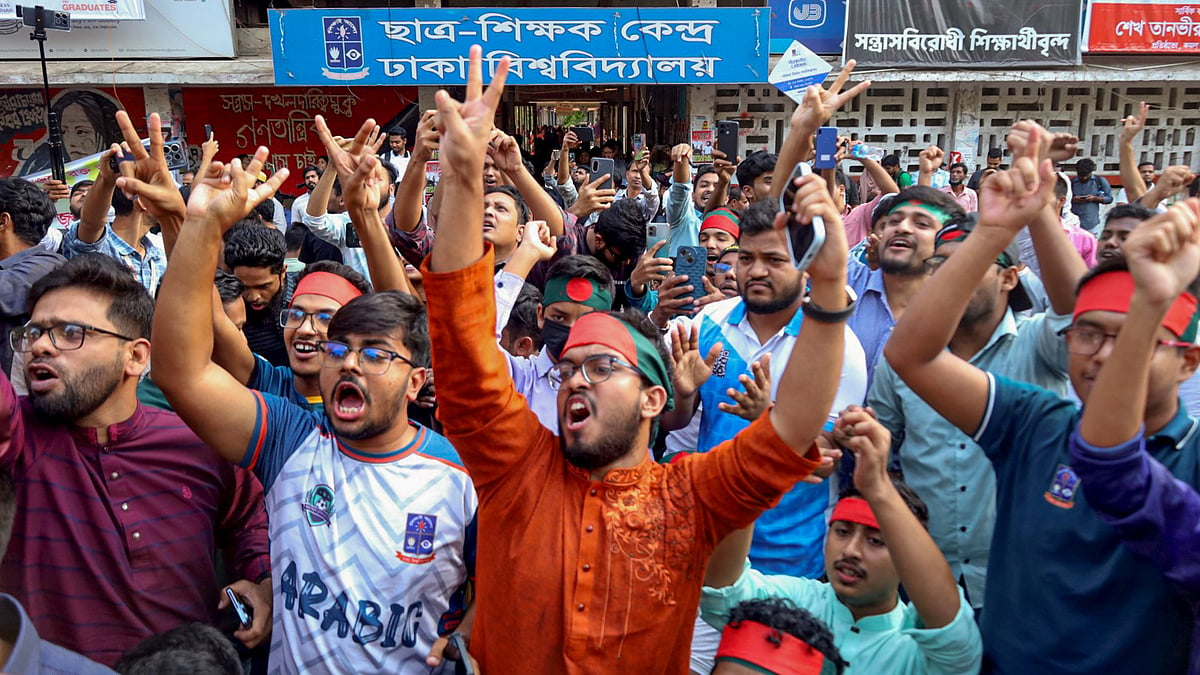World
UN calls Hasina verdict a key step for victims but regrets the death penalty
We stand firmly against the use of the death penalty, says UN spokesperson Stéphane Dujarric

The United Nations has described the verdict against Bangladesh’s ousted prime minister Sheikh Hasina on charges of crimes against humanity as an “important moment” for victims seeking justice, even as it voiced deep regret over the imposition of the death penalty.
At the UN headquarters in New York, secretary-general António Guterres aligned himself fully with the stance of UN Human Rights chief Volker Türk, reaffirming the organisation’s unwavering opposition to capital punishment in all circumstances. “We stand firmly against the use of the death penalty,” UN spokesperson Stéphane Dujarric said, responding to questions about the Bangladeshi court’s decision to sentence Hasina to death in absentia.
The ruling was delivered on Monday by Bangladesh’s International Crimes Tribunal, which found Hasina guilty of crimes against humanity committed during the tumultuous, student-led protests that swept the nation in July last year. The unrest, which triggered a sweeping security crackdown, left up to 1,400 people dead between 15 July and 15 August, according to a UN fact-finding report.
Published: undefined
Hasina, now 78 and living in India since her government was toppled on 5 August, was sentenced alongside her aide and former home minister Asaduzzaman Khan Kamal, who also received the death penalty.
UN officials underscored that the convictions represent a long-sought step toward accountability. Geneva-based UN Human Rights spokesperson Ravina Shamdasani said the verdicts mark “an important moment for victims of the grave violations committed during the suppression of protests last year.” But she stressed the UN’s profound regret that the tribunal resorted to capital punishment.
Shamdasani noted that the UN has consistently urged accountability for perpetrators — including those in positions of command — in line with international standards, while also calling for victims to receive meaningful remedies and reparations. She cautioned that the UN was not privy to the conduct of Hasina’s trial, but emphasised that trials for international crimes must “unquestionably meet international standards of due process and fair trial,” all the more so when proceedings are conducted in absentia and culminate in a death sentence.
Echoing Türk’s appeal for calm, the UN urged Bangladesh to navigate this sensitive moment with restraint and a commitment to reconciliation. The high commissioner called on the country to move forward with a comprehensive process of truth-telling, justice, and reparation — a path he said is essential to national healing.
Such a process, the UN added, must also include transformative security sector reforms that uphold international norms, ensuring that the severe abuses witnessed last year are never repeated. The organisation reiterated its readiness to support Bangladesh as it confronts the painful legacy of the past and strives toward a more just future.
With PTI inputs
Published: undefined
Follow us on: Facebook, Twitter, Google News, Instagram
Join our official telegram channel (@nationalherald) and stay updated with the latest headlines
Published: undefined